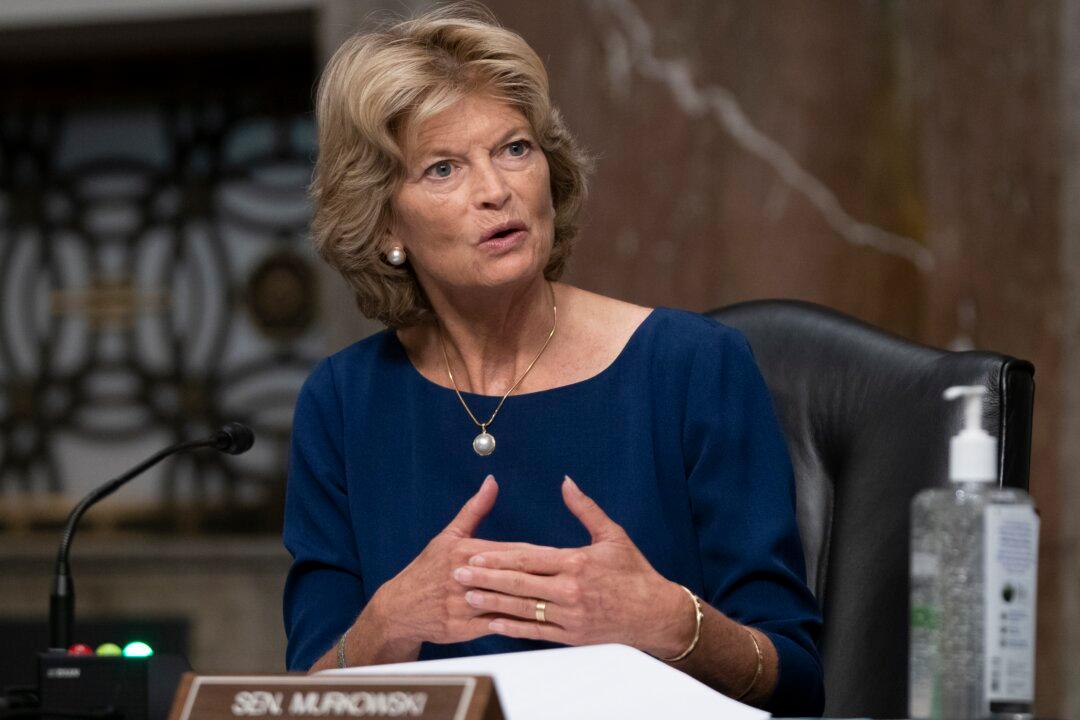Sen. Lisa Murkowski (R-Alaska) left open the possibility that she'll back President Donald Trump’s Supreme Court nominee even though she opposes the Senate considering the nominee prior to the upcoming election.
“I know everybody wants to ask the question, ‘will you confirm the nominee?’” Murkowski told Alaska Public Media said outside the Capitol in Washington on Tuesday.





